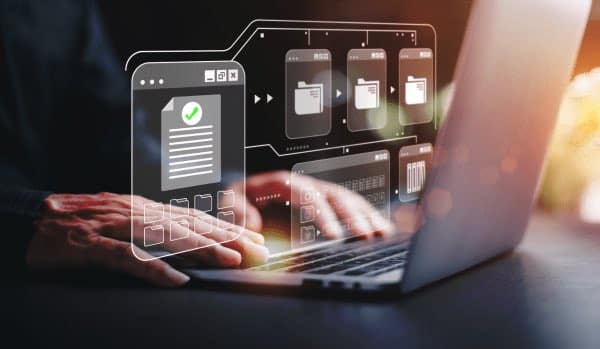Especially if you have commercial properties, retail management software needs to be designed and utilized in a manner that takes into account the complexity of the business. Online property management aims to streamline your commercial real estate experience and enhance customer satisfaction by consolidating everything into one convenient platform.
Numerous retail management software options are available, but keeping an eye out for these essential features will yield the best return on investment.
What Should You Look For?
Commercial property management software provides owners and managers of office, retail, and industrial buildings with the tools they need to increase the performance of their portfolios, make informed business decisions, and remain adaptable. These types of solutions can automate tasks that require a significant amount of time, such as billing tenants, managing leases, and collecting rent. They can also provide a single, unified copy of the data and perform complex calculations, which can save a significant amount of money.
1. Rent and Lease Tracking
It’s ideal to have software that alerts you when someone is late or a lease is ready for renewal, rather than relying on memory or rummaging through filing cabinets. Over 88% of survey respondents suggest they rely on complex spreadsheets for integral enterprise operations, EVEN when out-of-date data and spreadsheet risk could sabotage a business. We see the financial impact of these poorly run, spreadsheet-driven businesses every day.
Every leasing agreement depends on the business — a hospital will look radically different from a local bakery. Keeping tabs on the nuances of every line is more accessible when retail management software keeps everything in place.
Suppose a corporate office building is about to renew its lease, but they’re considering sending some workers to work remotely. It will alter the space they use and, therefore, the price. Online property management enables property managers to effectively negotiate the terms of lease agreements, including the amount tenants will pay, compared to previous versions.
Or, if a small business finds itself struggling after a natural disaster and needs rent extensions, you can keep records of its situation to remind yourself why the tenant is an exception.
2. Omnichannel Marketing Integrations
Finding tenants for commercial properties can happen organically. Other times, it requires extensive marketing efforts. Retail management software with integrations with marketing channels can save time and money on other third-party services.
If you see how much money you’ve spent on social media marketing within your budget, also available in the retail management software, it’s simpler to see what’s most influential and worth investing in for the long term.
Marketing integration is more than connecting to social channels. It includes accounting software like QuickBooks, too. What about the sales reports from Amazon or documents from Microsoft Office or cloud services? How well do these numbers funnel into the retail management software without too much metadata curating? These are all important considerations.
3. Maintenance Request and Customer Service Management
An industrial warehouse needs an evaluation of its HVAC system. A doctor’s office needs a roof inspection. The variety of customer service requests feels infinite. Keeping track of each in a sea of clients is manageable with the right software. How a program outlines and categorizes the requests, assigns technicians, and reports progress updates will set one software above the rest.
More efficient maintenance request displays yield decreased operational costs and a higher quality of life for tenants. You can build a reputation for being responsive and attentive because nobody forgets to call anyone back or visit a site for an assessment — and having live chat functionality for immediate support goes a long way in keeping consumers happy with your offerings.
Additionally, it helps real estate administrators and property managers review quality assurance through tenant feedback, connecting workers with the jobs they were assigned. This capability increases awareness of the operations, reveals which individuals are more proficient at which jobs, and highlights improvement opportunities.
4. Investment Data
Real estate is a temperamental game. Everyone knows how much the personal and commercial market changes on a daily basis — many times due to factors outside your control, like inflation.
Staying out of the loop about market trends could render your property investments useless if caught off guard by a market change. Following investment data and trends within retail management software can make anyone more proficient in the discussion surrounding the commercial real estate sphere.
You can see which properties increase in value or compare and contrast every sector’s performance. The rural warehouse might perform better than the urban office building. Knowing why and how to maximize your investment in every property is critical.
5. Quality of Life Features
Usability is paramount in retail management software. Core features like visualizing financials and leases are essential. However, none of these features feels convenient or worth the money if the program neglects the user interface and experience details.
Here are some examples that software developers should prioritize when attempting to make a more valuable program for property managers:
- Offline accessibility
- Intuitive navigation
- Minimal design with an easy-to-understand interface
- Customizable search features and filters
- Cybersecurity transparency and promises
Using STRATAFOLIO
Expert property management is more possible and profitable than ever with software like STRATAFOLIO. Retail management software dissolves stressors by collecting everything you need to operate efficiently in one place, which is exactly what STRATAFOLIO does. Collect rent, send out new leases, assign maintenance tasks, and see all of your data in one place. Schedule a 1:1 demo today and learn how you can utilize our property management software!








